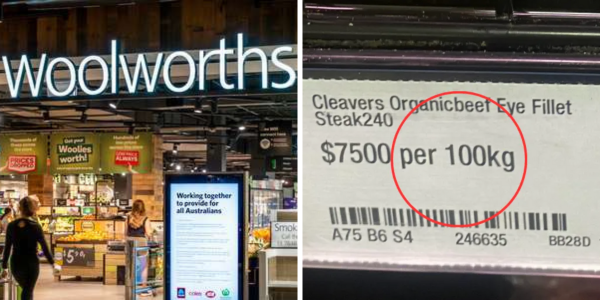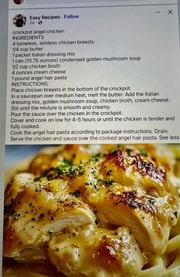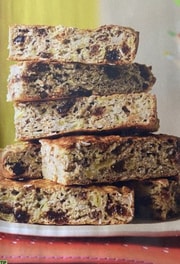This ‘insignificant’ detail at Woolworths could be fooling you into paying more
By
VanessaC
- Replies 11
Unit pricing—the display of price per weight or volume—has been mandatory in Australia for decades as it gives shoppers a way to compare costs between brands and sizes.
But not all retailers make these comparisons easy.
Case in point: A recent incident involving Woolworths’ in-store labels has consumers questioning whether some pricing displays are intentionally obscure.
At one Woolworths store, a shopper noticed a pack of steak that was labelled with a unit price of $7,500 per 100kg which left them confused as they were only looking for a normal half a kilo worth of beef.

This prompted the shopper to share an image of the label on social media with the caption 'cost of living is getting out of hand'.
However, other users who commented on the post shared their theories, with many believing that the odd pricing may be a tactic to hide the expensive cost of the meat, which is $75 per kilo.
Woolworths claims it was a mistake.
'While there was a typo error on the self sticker in this store, this product has an individual price printed on each pack due to slight weight differences, so the customer [would] have been charged the accurate price,' they explained.
Graham Cooke, Finder’s Head of Consumer Research, emphasised the importance of not taking labels at face value when shopping.
'It looks like a case of somebody just putting a default price in the wrong point, mistakes can happen on those tags,' he said.
Whether it was a mistake or not, Joel Gibson, an author and a consumer expert felt frustrated and was surprised to see a label with such pricing.
'It's hard to see how that mistake could be possible given no one is buying 100kg of anything at the supermarket, let alone fillet steak,' Mr Gibson said.
'The system should simply reject a label based on 100kg of any product. [This labelling is] against the Unit Pricing Code.'
'Consumer advocates had to fight for years to get unit pricing mandated in Australia and it's one of the few tools that shoppers have to make sense of all the different packet sizes and product placements and other marketing tricks in the supermarkets,' he added.
According to Finder’s Consumer Sentiment Tracker, 42 per cent of Aussies said that grocery shopping has caused financial stress. This number has doubled over the last three years as it used to be 19 per cent.
'Increased costs have really made families struggle to pay for grocery bills so it's more important than ever to try and find savings,' Mr Cooke shared.
With prices constantly increasing, Mr Cooke shared that doing research and staying vigilant may help.
Below are easy ways to save on grocery bills according to Mr Cooke:
In other news, Woolworths shoppers noticed a huge change to the retailer’s loyalty scheme—customers have now been separated into different status groups regarding certain prices.
One shopper shared a photo of a shelf label highlighting how members are eligible for exclusive access to cheaper prices on various items.
The photo shows packets of Cobs Salted Caramel Popcorn priced at two for $6 for Everyday Rewards members and $4 each for non-members.
This move has caused an outcry from those who aren’t signed up for the loyalty program, with some vowing to take their money elsewhere or disgusted that such subscription programs are sneaking into supermarkets.
You can read more about this story here.
 Members, have you seen a similar situation happen in your local Woolworths? Let us know in the comments below!
Members, have you seen a similar situation happen in your local Woolworths? Let us know in the comments below!
But not all retailers make these comparisons easy.
Case in point: A recent incident involving Woolworths’ in-store labels has consumers questioning whether some pricing displays are intentionally obscure.
At one Woolworths store, a shopper noticed a pack of steak that was labelled with a unit price of $7,500 per 100kg which left them confused as they were only looking for a normal half a kilo worth of beef.

A shopper spotted a label with a unit price of $7,500 per 100kg at Woolworths. Image source: Shutterstock (left), Reddit (right).
However, other users who commented on the post shared their theories, with many believing that the odd pricing may be a tactic to hide the expensive cost of the meat, which is $75 per kilo.
Woolworths claims it was a mistake.
'While there was a typo error on the self sticker in this store, this product has an individual price printed on each pack due to slight weight differences, so the customer [would] have been charged the accurate price,' they explained.
Graham Cooke, Finder’s Head of Consumer Research, emphasised the importance of not taking labels at face value when shopping.
'It looks like a case of somebody just putting a default price in the wrong point, mistakes can happen on those tags,' he said.
Whether it was a mistake or not, Joel Gibson, an author and a consumer expert felt frustrated and was surprised to see a label with such pricing.
'It's hard to see how that mistake could be possible given no one is buying 100kg of anything at the supermarket, let alone fillet steak,' Mr Gibson said.
'The system should simply reject a label based on 100kg of any product. [This labelling is] against the Unit Pricing Code.'
'Consumer advocates had to fight for years to get unit pricing mandated in Australia and it's one of the few tools that shoppers have to make sense of all the different packet sizes and product placements and other marketing tricks in the supermarkets,' he added.
According to Finder’s Consumer Sentiment Tracker, 42 per cent of Aussies said that grocery shopping has caused financial stress. This number has doubled over the last three years as it used to be 19 per cent.
'Increased costs have really made families struggle to pay for grocery bills so it's more important than ever to try and find savings,' Mr Cooke shared.
With prices constantly increasing, Mr Cooke shared that doing research and staying vigilant may help.
Below are easy ways to save on grocery bills according to Mr Cooke:
- Don’t take pricing labels at face value. If a label looks and feels strange, do not hesitate to question it.
- Download and use supermarket apps to compare prices and find the cheapest items.
- Don’t do all your shopping in one store, shop around and get the best deals from each store.
In other news, Woolworths shoppers noticed a huge change to the retailer’s loyalty scheme—customers have now been separated into different status groups regarding certain prices.
One shopper shared a photo of a shelf label highlighting how members are eligible for exclusive access to cheaper prices on various items.
The photo shows packets of Cobs Salted Caramel Popcorn priced at two for $6 for Everyday Rewards members and $4 each for non-members.
This move has caused an outcry from those who aren’t signed up for the loyalty program, with some vowing to take their money elsewhere or disgusted that such subscription programs are sneaking into supermarkets.
You can read more about this story here.
Key Takeaways
- A consumer expert has questioned a label's bizarre pricing of an organic steak at a Woolworths store in Sydney.
- The label priced the steak at $7500 per 100 kilograms has caused confusion among shoppers and sparked the discussion that it may be a deliberate tactic to hide the actual cost.
- A Woolworths spokesperson confirmed that it was a mistake and customers would still be charged an accurate price based on the weight difference indicated on each individual pack.
- Graham Cooke, Head of Consumer Research at Finder, urged shoppers to be careful and not take labels at face value, as these mistakes can happen.







